I’m not really equipped to adequately review You So Black. Any book or service that has intentional grammar misuse or spelling is something that immediately stops progress in my mind. If you’re a car donation service or daycare, then intentionally misspelling your name is just lazy, but can also be effective. You So Black falls into that category too due to its grammar and the fact that it’s a poetry book. However, this illustrated book is a bit more complicated than that. You So Black is based on its performance at the 2019 Trumpet Awards. Theresa Wilson passionately performed a poem along these lines that was met with a rapt response from the crowd and the internet.
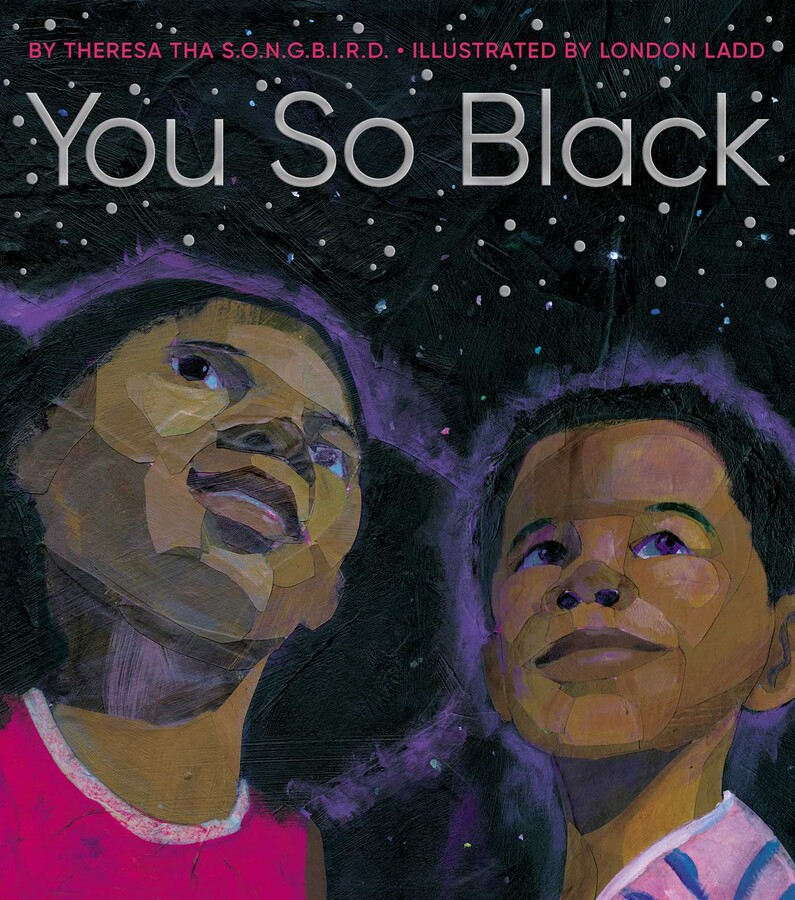
You So Black is also reminiscent of taunting Black people due to their darker skin shades. It started out as a way to discourage slave masters from bidding on people when they were on the slave block. When I was a kid in the 80’s it was used in a seemingly jokey way between friends who themselves are Black. This book takes that saying, flips it on its head, and aims to make it a call for strength.
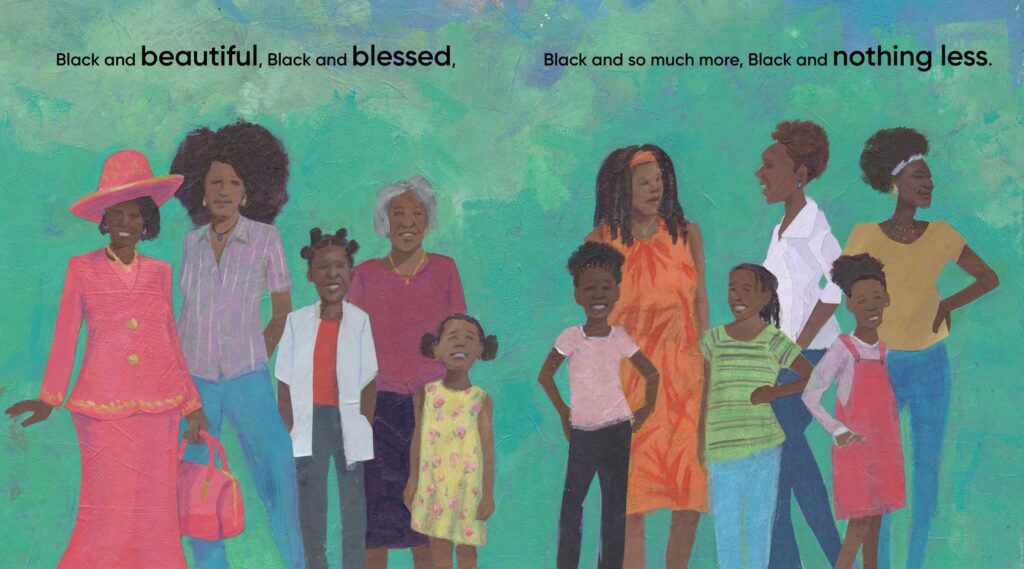
This is also a book that has cultural repercussions and history that I can’t relate to, so I asked two Black friends of mine what they thought about the book. Neither one of them had heard of or seen Wilson’s original performance. I don’t mention that as a negative, it’s simply that her performance is more obviously empowering, whereas a cursory look at the book could be curious.
My first friend said she didn’t like the title, but understood its meaning as a can-do anthem. After looking at the book she was slightly warmer to it overall, but not enough to write home about.
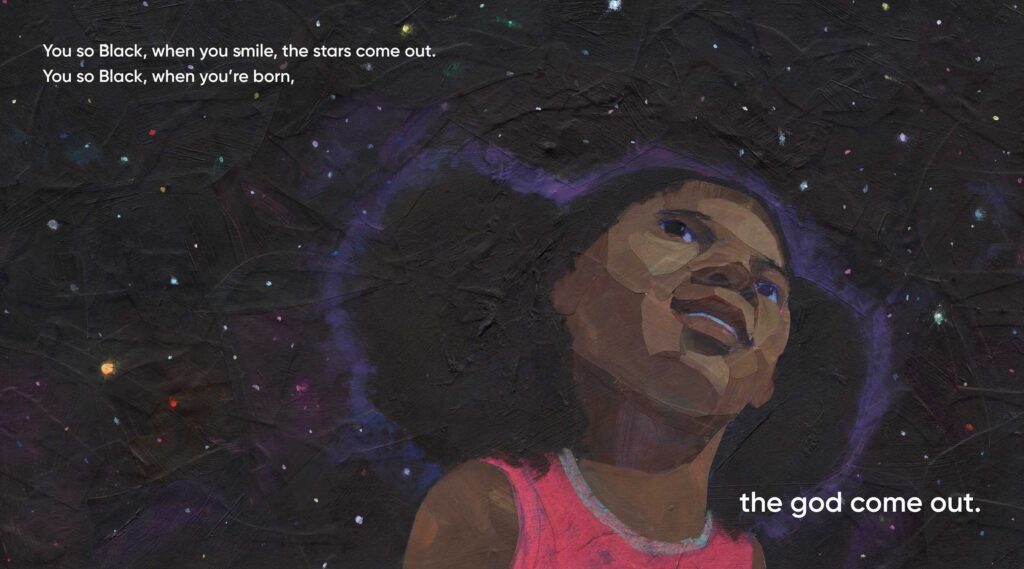
The second person I showed You So Black had more to say about the book. At first, she was curious, saying the title of the book to herself a couple of times. After reading it she very quickly deduced that the title had two meanings. Her first interpretation of it was as it if was setting up a Chris Rock joke. But then she also pointed out that it could be viewed as empowering.
We’re in the same profession and about the same age, so she proceeded to provide some examples of how you so black was used to rib or tease her friends back in the day. She said that her kids could also go between the two ways that you so black could be interpreted much quicker than she can. In the end, You So Black will speak strongly to those people who it needs to speak to. Black kids, especially those who don’t hear that they can do anything or be anyone need to hear positive messages.
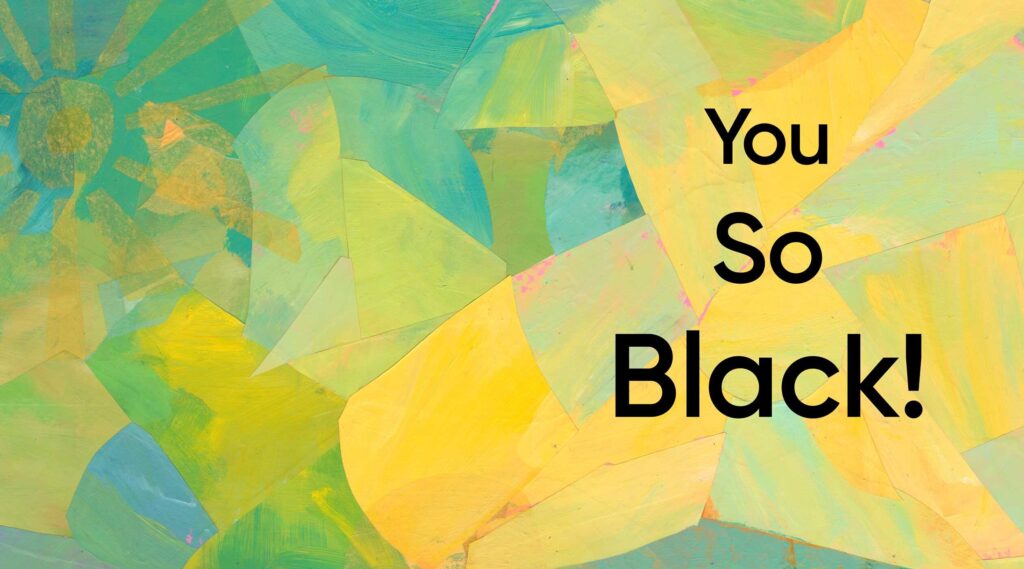
However, it takes a calm, poetic eye to dig into the book’s positivity in order to completely avoid any pejoratives that its title might imply to some readers. This is especially true for elementary school audiences, which would seem to be the book’s target market. The text consists of simple sentences, like black is brilliant, black if me, black is you and other metaphors that illustrate the power of you.
As it originally was presented, in front of a crowd as a poem the verse is more powerful. In that forum the speaker can emphasize words, draw them out, and state things a certain way. As a book, it can still be strong, but will depend more on the person who is presenting or reading it.
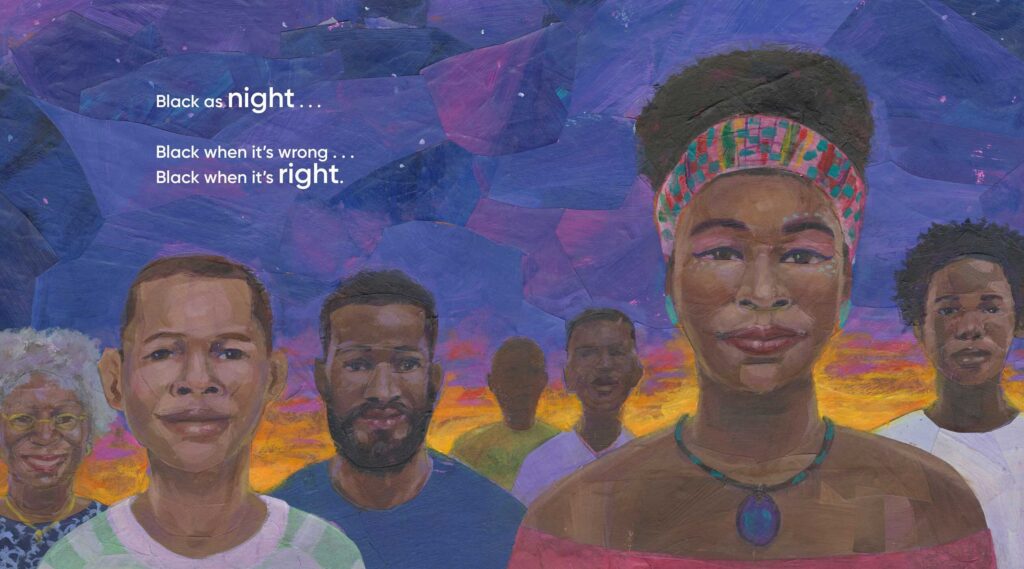
The illustrations by London Ladd are as strong as the words and emotions in the book. They perfectly match the text in tone and fill the pages with contrasting colors. It’s probable that young readers will look at the art more than they will as they read the words. Poetry is a medium that can play fast and loose with grammar. Taken in that spirit, You So Black is an illustrated book that’ll speak to those children who are in the correct situation. It’s a book that won’t have wide appeal, but this is aimed at young, Black audiences that need to hear the message that they might not be getting now.
You So Black is by Theresa Tha S.O.N.G.B.I.R.D and illustrated by London Ladd and is A Denene Millner Book, an imprint of Simon & Schuster Books for Young Readers.
There are affiliate links in this post.
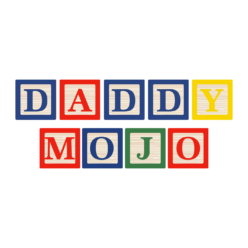
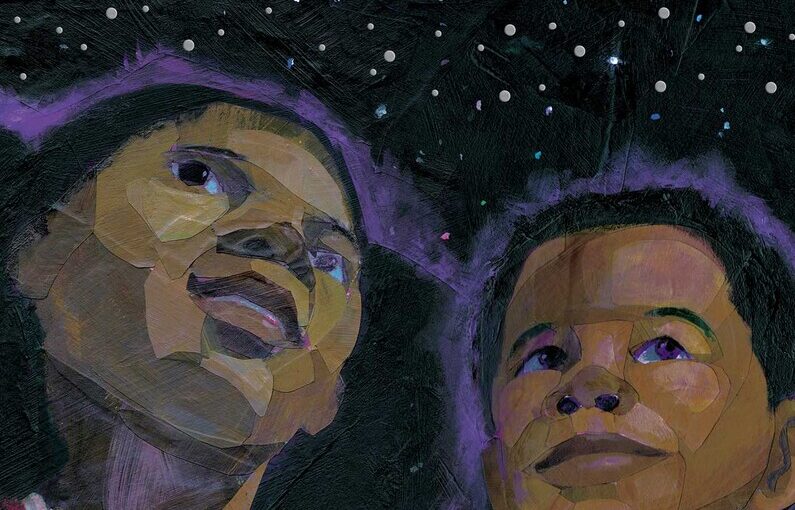



 Facebook
Facebook Twitter
Twitter Flickr
Flickr GooglePlus
GooglePlus Youtube
Youtube